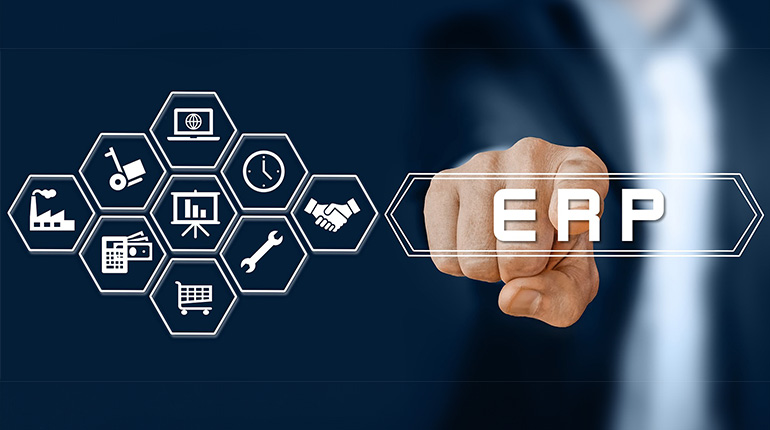In today’s fast-paced business environment, organizations face numerous challenges, from managing data and processes to optimizing resources. Enterprise Resource Planning (ERP) software has emerged as a powerful solution to address these challenges. By integrating various business functions into a single system, ERP software offers a multitude of benefits that can enhance efficiency, improve decision-making, and drive growth. Here are some key benefits of using ERP software for your business.

1. Streamlined Processes and Improved Efficiency
One of the primary advantages of ERP software is its ability to streamline business processes. By integrating various functions such as finance, human resources, inventory, and supply chain management into a single platform, ERP eliminates the need for disparate systems and manual processes. This integration helps organizations:
- Reduce Redundancies: With a centralized database, data entry is minimized, reducing the risk of errors and duplication.
- Enhance Workflow Automation: Automating routine tasks allows employees to focus on more strategic activities, improving overall productivity.
- Improve Collaboration: A unified system fosters better communication and collaboration across departments, enabling teams to work together more effectively.
2. Enhanced Data Accuracy and Reporting
ERP software provides a centralized database that ensures data accuracy and consistency across the organization. This enhanced data integrity leads to more reliable reporting and analysis. Key benefits include:
- Real-time Data Access: Decision-makers can access up-to-date information at any time, allowing for timely and informed decisions.
- Comprehensive Reporting: ERP systems often come with advanced reporting tools that enable organizations to generate detailed reports on various metrics, helping to identify trends and areas for improvement.
- Better Forecasting: Accurate data enables more reliable forecasting, helping businesses plan for future demand, inventory levels, and resource allocation.
3. Improved Customer Service
Delivering exceptional customer service is crucial for business success, and ERP software can significantly enhance customer satisfaction. By providing a 360-degree view of customer interactions and history, ERP systems enable businesses to:
- Respond Quickly to Inquiries: With immediate access to customer data, employees can address inquiries and resolve issues more efficiently.
- Personalize Customer Interactions: Organizations can tailor their offerings based on customer preferences and purchase history, leading to enhanced customer loyalty.
- Track Order Fulfillment: ERP systems allow for better tracking of orders, ensuring timely delivery and transparency throughout the order process.
4. Cost Savings and Increased Profitability
While implementing ERP software involves an upfront investment, the long-term cost savings and profitability improvements can be significant. Key cost-saving benefits include:
- Reduced Operational Costs: By automating processes and improving efficiency, businesses can lower labor costs and operational expenses.
- Optimized Inventory Management: ERP software helps businesses manage inventory levels more effectively, reducing carrying costs and minimizing stockouts or overstock situations.
- Better Resource Allocation: With enhanced visibility into resources and processes, organizations can allocate resources more effectively, ensuring that they are used where they provide the most value.
5. Scalability and Flexibility
As businesses grow and evolve, their needs change. ERP software is designed to be scalable, allowing organizations to add new modules or functionalities as needed. This flexibility enables businesses to:
- Adapt to Market Changes: ERP systems can easily accommodate new processes or products, helping organizations stay competitive in a changing market.
- Support Growth: As companies expand, ERP software can grow with them, allowing for the integration of new locations, departments, or product lines without the need for extensive reconfiguration.
- Enhance Customization: Many ERP solutions offer customization options, allowing businesses to tailor the system to their specific requirements and workflows.
6. Regulatory Compliance and Risk Management
Compliance with industry regulations and standards is a critical concern for businesses in various sectors. ERP software can help organizations manage compliance and reduce risks by:
- Centralizing Compliance Data: ERP systems can store compliance-related information in one location, making it easier to access and manage.
- Automating Compliance Processes: By automating reporting and documentation processes, businesses can reduce the risk of non-compliance and associated penalties.
- Enhancing Security: ERP software often includes robust security features that help protect sensitive data and mitigate risks associated with data breaches.
7. Better Decision-Making
With access to real-time data and comprehensive reporting tools, ERP software empowers decision-makers to make informed choices. Key benefits include:
- Data-Driven Insights: Organizations can analyze data trends and patterns to identify opportunities for growth and improvement.
- Improved Strategic Planning: With accurate forecasting and reporting, businesses can develop more effective strategies that align with their goals.
- Increased Agility: Organizations can quickly respond to changing market conditions and adjust their strategies based on reliable data.
Conclusion
Implementing ERP software can bring a host of benefits that drive efficiency, improve customer service, and enhance decision-making for businesses of all sizes. By streamlining processes, centralizing data, and providing powerful reporting tools, ERP systems enable organizations to optimize their operations and adapt to a constantly changing business landscape.


No responses yet